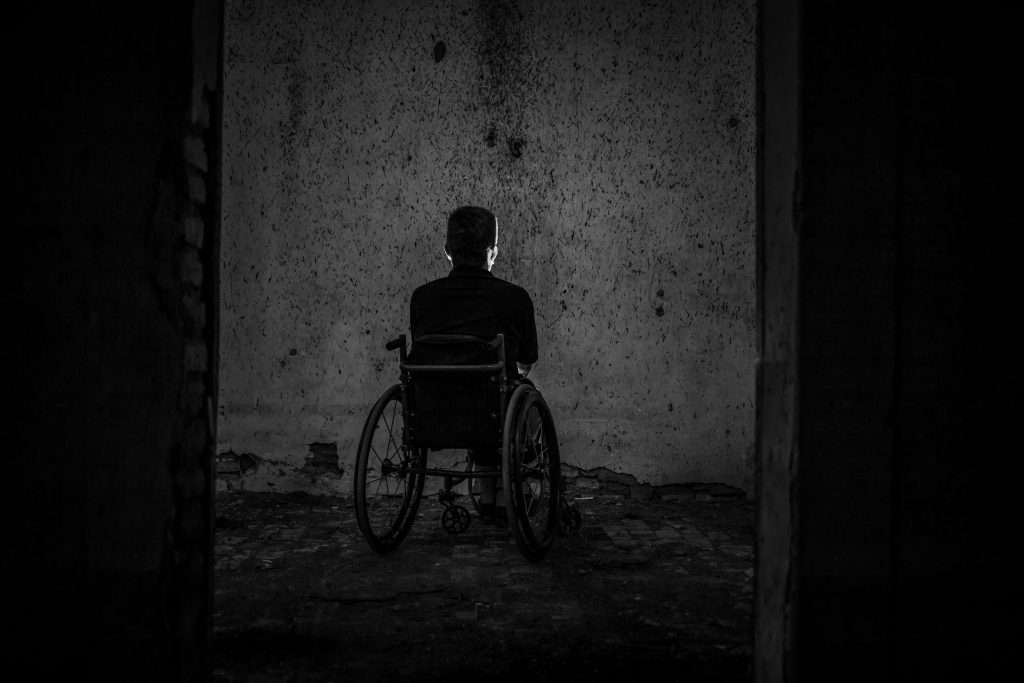Before I was paralyzed in a snowmobile accident at the age of 13 I never gave much thought to the things I chose not to participate in. If I had the opportunity to go somewhere I would make my decision whether to take part based on if I felt like going or not. End of story.
It didn’t occur to me that making the choice; having the choice at all, was a privilege.
You see when you are in a wheelchair there are times that you don’t have the choice to go, even if you want to with all your heart. Sometimes that choice is made for you by a lack of accessibility in the built environment or by nature itself. There are just some places we don’t get to go.
By the time I had been in a wheelchair for a few years I got used to what it felt like to have to be left behind. To watch others go and do things I wanted to do.
It sucked and I thought I had figured out how to not let it bother me.
And then I had kids. And watching your kids go places that you can’t follow is a whole other story.
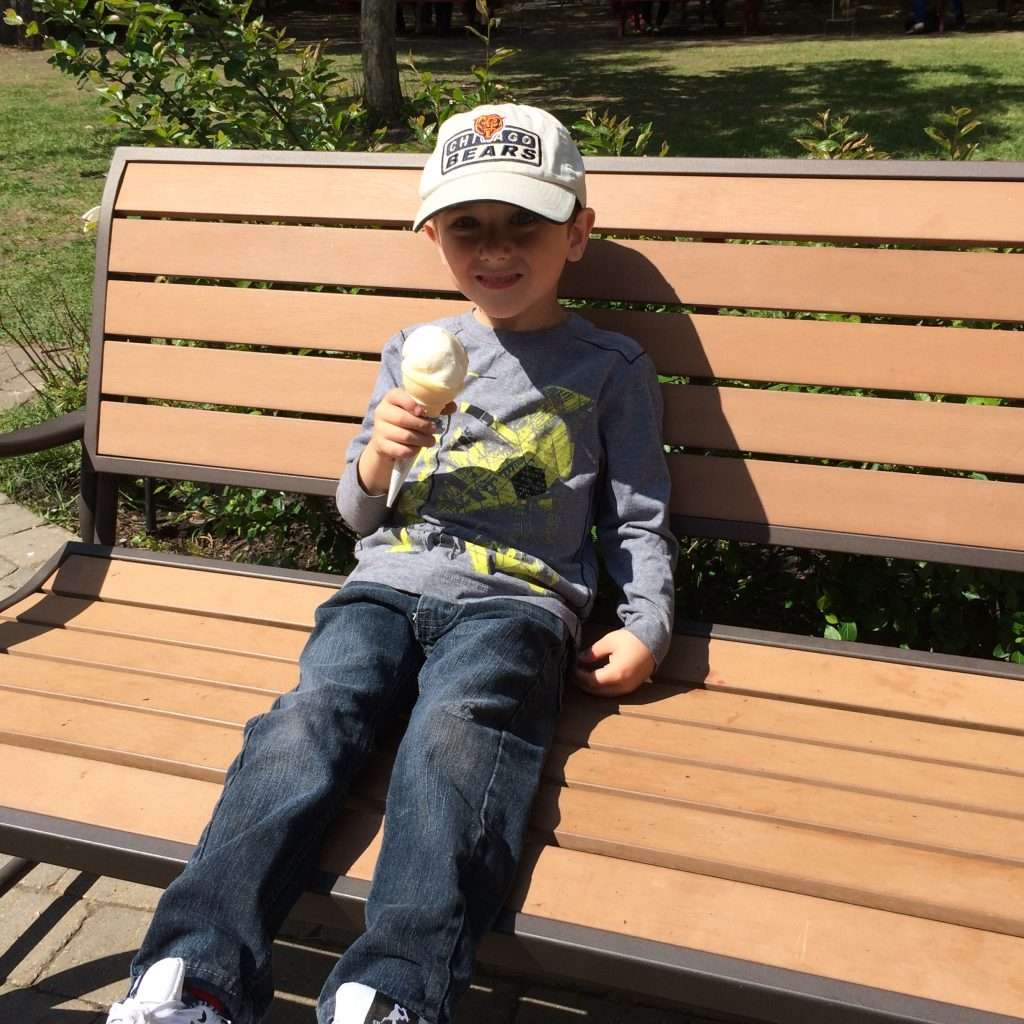
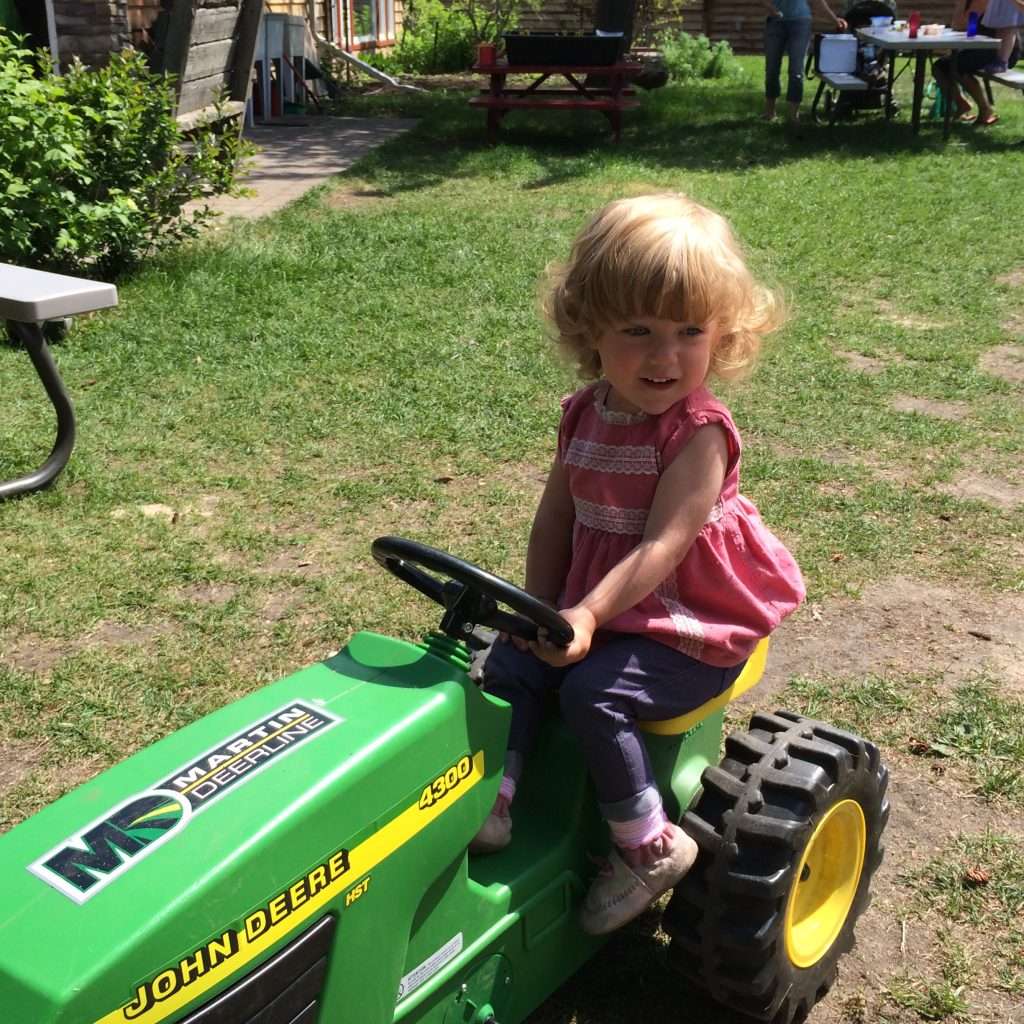
The first time It happened I was in the Dominican Republic with my family for my sister’s wedding. My son was 5 and he wanted to go swimming with dolphins. I was so excited that he had chosen this activity. I couldn’t wait to go and see the look on his face as he saw a dolphin for the first time up close. My husband went to get some information about the excursion and when he returned to our hotel room he had a look on his face that told me there was bad news.
I expected him to say that there was no excursion for the dates that we were there or that my son Jacob was too young to go. But it turns out the bad news wasn’t for them, the bad news was for me. There definitely was an excursion during our stay and Jacob was just old enough to go. But…. this was the Dominican…… and the tour was not wheelchair accessible.
Of course the tour isn’t wheelchair accessible, I thought. The resort we were staying at barely passed that test.
My heart sank. All I could think about was how excited Jacob was to go.
My husband said, “we don’t need to go, Jacob is pretty little, he probably won’t remember it anyway.”
For a second I wanted to agree. It felt almost right to let my son and husband miss out on the experience. After all, it wasn’t my fault that the excursion wasn’t wheelchair accessible. My husband would understand. Even my son would understand. I could just tell him that we couldn’t go because the tour didn’t work for mommy’s wheelchair. Jacob had heard that enough times when it was just him and I and I couldn’t physically take him somewhere that he wanted to go. It could have been so easy. To just forget about the whole thing and go on with our holiday.
But then I closed my eyes and saw the smile on Jacob’s face in my mind as he touched a dolphin.
It was then that I had to make a choice. The first of many that I would have to make as a mom in a wheelchair.
To decide that this wasn’t about me. That the world doesn’t revolve around me and my wheelchair. And that my family, my kids, aren’t in this wheelchair with me.
I was devastated, but said, “No, you guys go.”
My husband saw my heart breaking and offered, “If you want to go I will make it happen, I can piggyback you to the boat and go back and get your wheelchair from the bus. It’s only a mile. I can do it.”
I thought, yeah he probably could. But should I let him. Do I really want to make my son’s memories of the excursion all about daddy struggling to carry mommy and then running back to get my wheelchair? Or me stressing out because there would be no wheelchair accessible bathroom that I could use?
Or do I want Jacob to remember being able to walk with his dad, leisurely taking in the sights and sounds on their way from the bus to the ocean.
I wanted to be a part of the experience, but not if it was going to take away from everyone elses.
I willed myself to smile when my little boy came into the room and said to him, “Guess what Jacob! You and daddy are gonna go swim with the dolphins!”
He was so excited to go on a big boy adventure with his dad. It didn’t occur to him that mommy was sad and felt left out. And that’s the way I wanted it. I told him that I was going to stay back with his little sister and have a mommy, daughter day.
The day of the excursion, I stayed at the hotel with my sister, parents, and daughter Jamie who was 18 months old at the time. I made my husband promise to video the whole experience and couldn’t wait for them to return so I could hear all about it.
When Jacob got back he was beaming! He got to swim with a dolphin and kiss a sea lion. He had so much fun. I was so glad that I made the decision to let him go, even if I couldn’t.
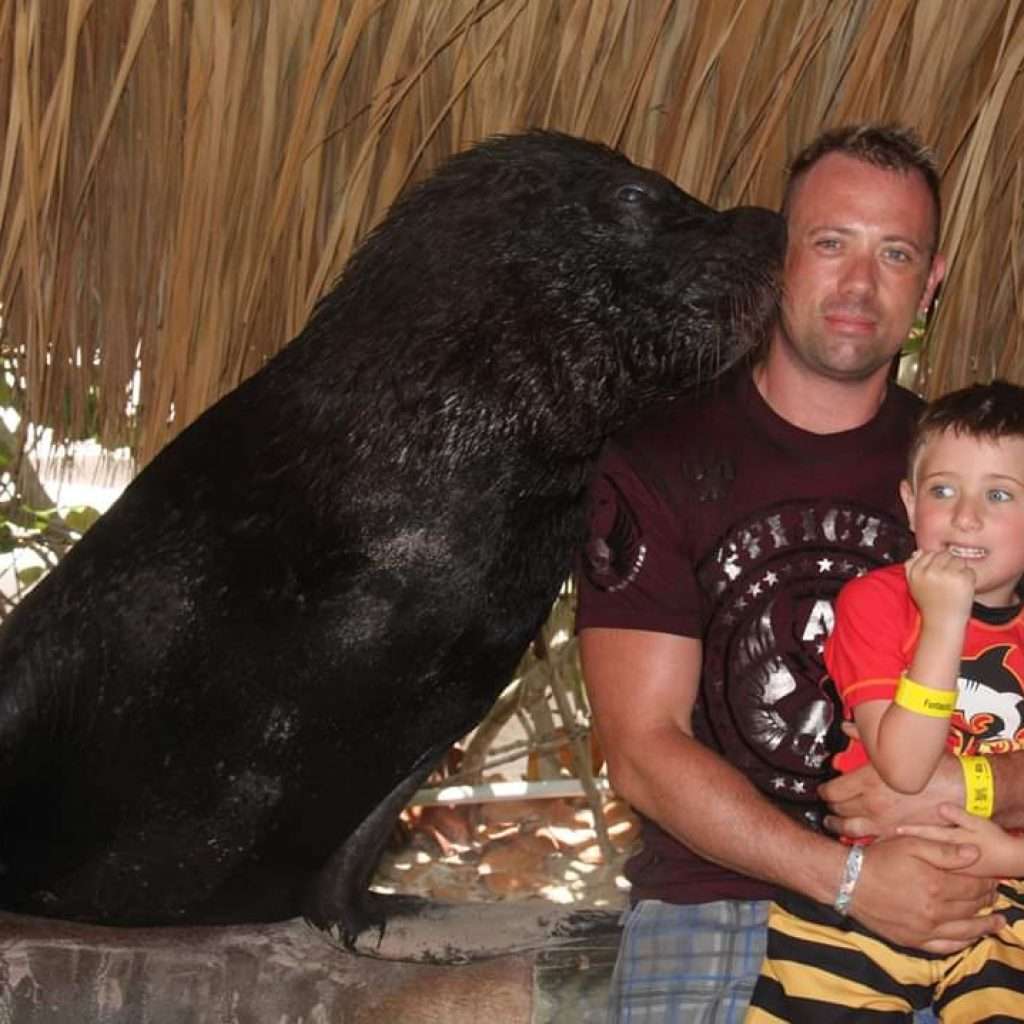
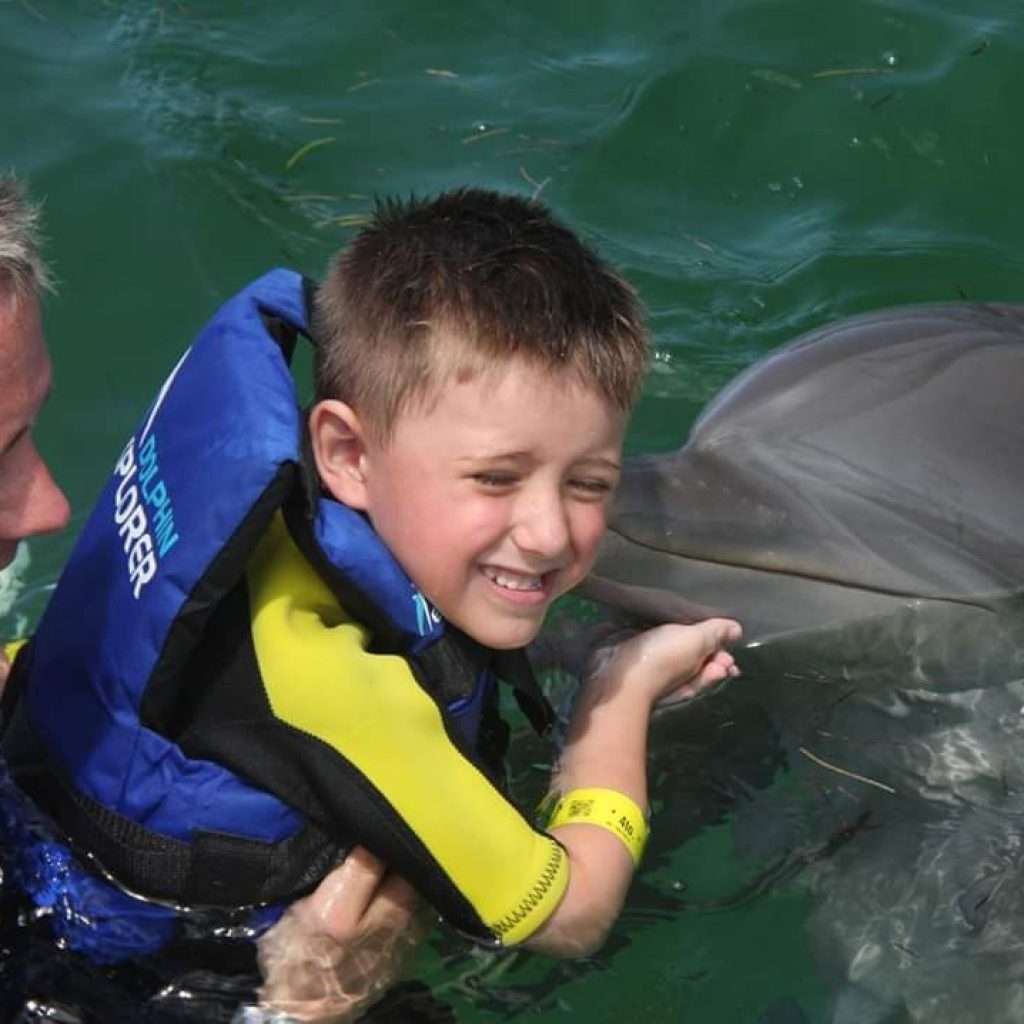
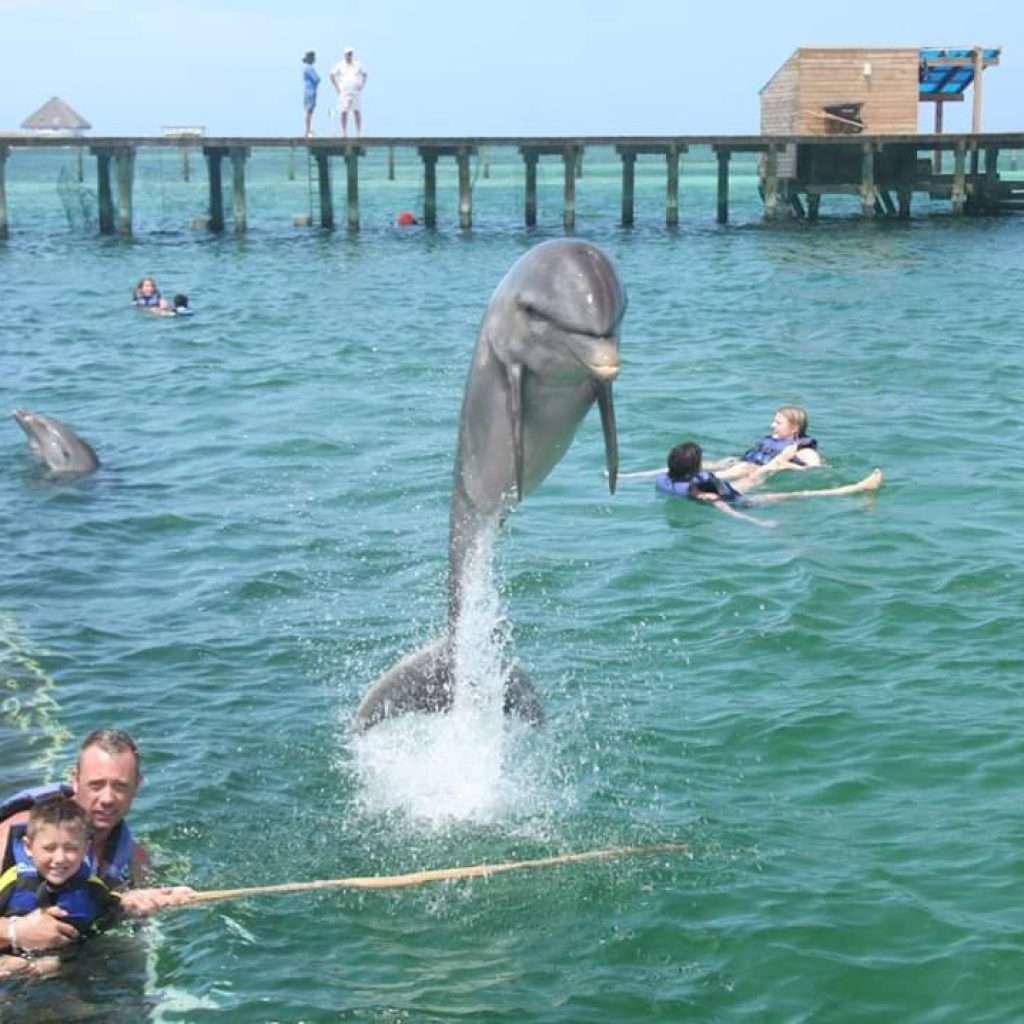
That was just the first of many times that I’ve watched my kids go and experience life without me. And it never gets easier.
It is the strange mix of heartbreak and joy that comes with being left behind, wishing that your kids have the time of their lives, yet knowing you won’t be there to see it.
When you are in a wheelchair, this is just part of the package.
And it’s really hard.
But just because something is hard doesn’t mean it has to make you miserable.
And it doesn’t mean that you are a victim either.
Steve Maraboli, in his book Unapologetically You, Reflections on Life and the Human Experience says this:
“There are times in my life when I have been medicine for some while poison for others. I used to think I was a victim of my story until I realized the truth; that I am the creator of my story. I choose what type of person I will be and what type of impact I will leave on others.”
In other words, we get to choose, in any circumstance whether we will be a victim and project our sadness, frustration and anger onto others or whether we will choose to be empowered and create a story where we get to be a hero.
I want my kids to think I am a hero. And I never want to make them feel like they have to miss out on something just to make me feel better.
So, How do you be a hero in a story where you feel left out?
By remembering these four things:
- Your family wants you to be a part of experiences just as much as you do, but if there is nothing you can do to change a situation with immediate action and there is no way you can feasibly take part, don’t make your loved ones miss out.
- Don’t make your family feel guilty for doing things you can’t do. Your wheelchair is not a biological trait that gets passed down to your kids, so don’t pass on your limitations to them. Don’t resent them either.
- Make the most of the experiences that you can be a part of and focus on making great memories.
- Be proactive. If something isn’t wheelchair accessible, do something about it. Educate the person, company, or whoever is in charge about how the lack of wheelchair accessibility affected your life. Offer suggestions and solutions to them. Remember humiliation is not education. If you want someone to listen, then starting with the negative isn’t a good idea. Start with what you were looking forward to seeing and highlight the great things about their business that you want to be a part of.
The world is more inclusive now than ever before but it’s still far from perfect. We can complain about the problems or choose to be positive and help create solutions.
Next time you feel left out or left behind, remember that you get to help create the ending of the story. Make it a good one.


